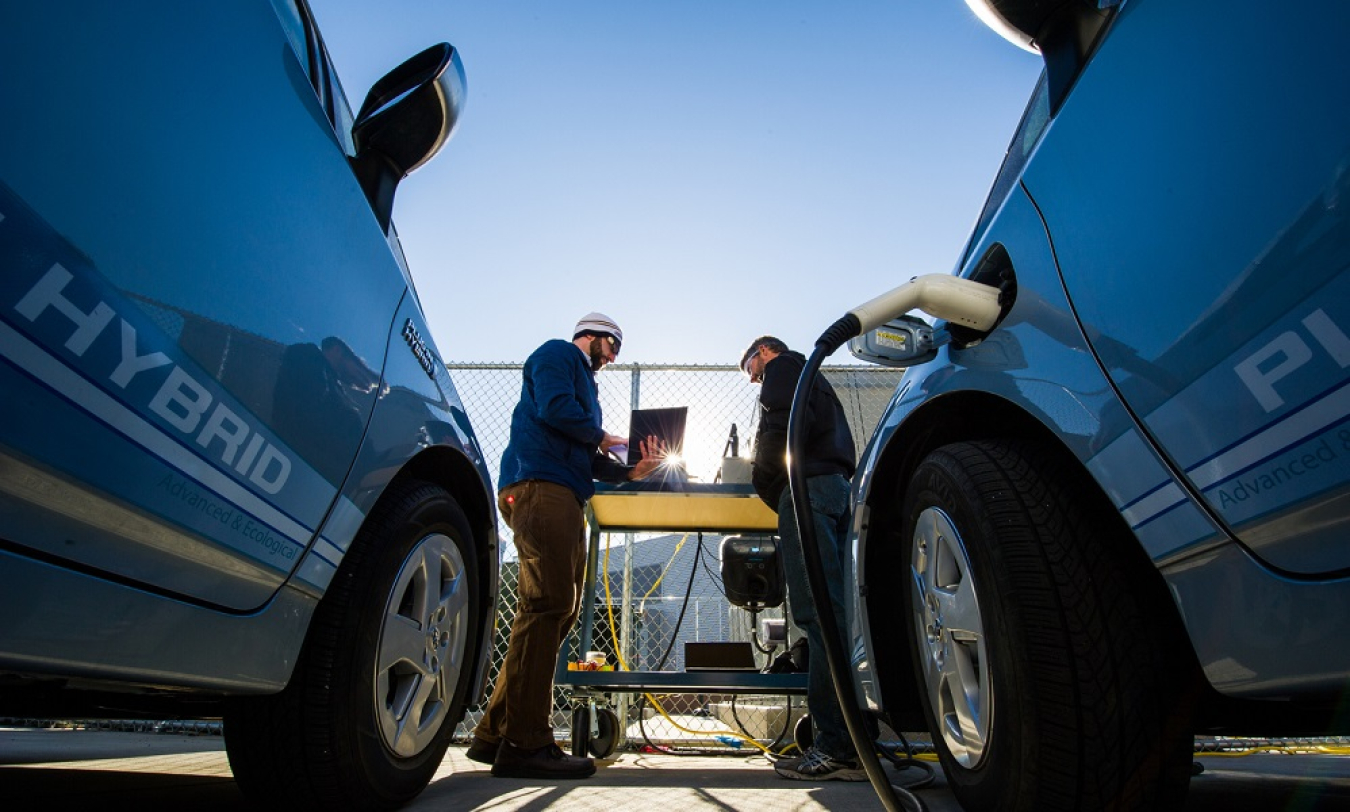
The Office of Energy Efficiency and Renewable Energy’s (EERE) Sustainable Transportation portfolio focuses on making transportation energy use more affordable, efficient, and secure. EERE provides tools, resources, and more on vehicles, bioenergy, and fuel cells to help state and local governments reduce transportation agency expenses, improve infrastructure, and decrease the impacts of transportation-associated activities on the environment by using advanced vehicles and alternative fuels.
Vehicles
- Clean Cities supports public-private coalitions that partner with stakeholders—including state governments—that are dedicated to minimizing petroleum use in transportation.
- Vehicle Technologies Office allows state and local decision makers to access information on sustainable transportation technologies and participate in coalitions to minimize petroleum use and increase alternative fuels.
- Alternative Fuels Data Center provides data on laws and incentives, the Plug-In Vehicle Readiness Scorecard, and Alternative Fueling Station Locator to help fleets and other transportation decision makers find ways to use less petroleum through the use of alternative and renewable fuels, advanced vehicles, and other fuel-saving measures.
- EPAct Transportation Regulatory Activities support fleets in meeting their requirements under the Energy Policy Act, which calls for some state government fleets to acquire alternative fuel vehicles.
- Workplace Charging Challenge aims to increase the number of and support of U.S. employers offering access to workplace charging for plug-in electric vehicle drivers.
Bioenergy
- Integrated Biorefineries Interactive Map showcases biorefineries by state at pilot, demonstration, and pioneer scales.
- Bioenergy Technologies Office establishes biomass state and regional partnerships with the public sector to advance the market for commercially viable biofuels, bioproducts, and biopower to increase energy independence.
- BioenergizeME Map is an educational tool of interest to K-12 and for public sector initiated consumer campaigns to improve their foundational understanding of bioenergy. The map displays infographics by searchable topic that students nationwide contributed.
- State Fact Sheets summarize how states are expanding promising bioenergy research into commercial production.
Fuel Cells
- Fuel Cells Technologies Office addresses safety issues and facilitates the development of model codes and standards, which states can use to inform policy and procurement decision making.
- Increase Your H2IQ educates state and local governments with knowledge of hydrogen and fuels with easy-to-understand fact sheets, multimedia tools, fuel cell animation, and other introductory resources.
